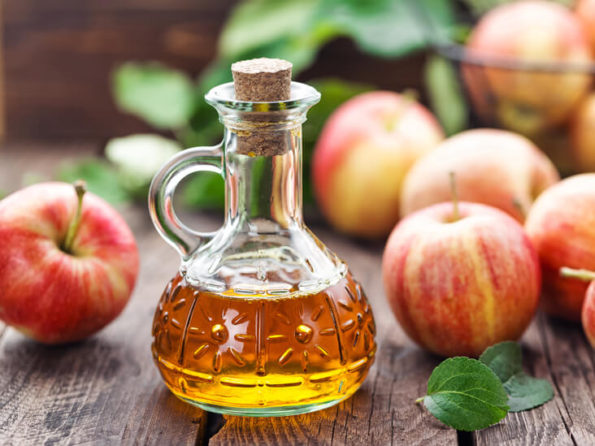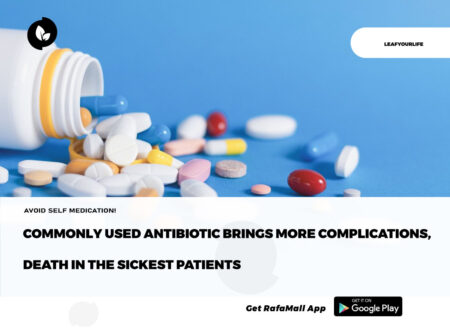
Apple cider vinegar has been used to treat certain health conditions for thousands of years. The Greek doctor Hippocrates, often considered the father of modern medicine, famously used apple cider vinegar to clean wounds. This popular home remedy is also thought to help lower blood sugar, curb hunger, and promote weight loss.
In addition to these benefits, some proponents claim that apple cider vinegar has anti-inflammatory and antioxidant properties that may help lower blood pressure. Research is limited in this area, but studies suggest that the treatment could have some benefits for blood pressure and heart health, especially when used in combination with other healthy lifestyle habits.
However, if you have been diagnosed with high blood pressure, it’s important to note that apple cider vinegar is not a replacement for traditional medical treatments, such as medication. If you are curious about trying apple cider vinegar for high blood pressure, have a conversation with your healthcare provider to discuss the potential benefits and how it might fit into your treatment plan.
This article will explain the potential benefits of apple cider vinegar for blood pressure, side effects to be aware of, and the dosage for best results
Apple Cider Vinegar and Blood Pressure: Are There Benefits?
Apple cider vinegar is made by allowing natural yeast and bacteria to ferment the sugars in apple cider. This creates a compound called acetic acid that has been shown to have antimicrobial properties. It can also contain lactic, citric, and malic acids. These acids give the vinegar its signature sour taste.
Raw unfiltered apple cider vinegar also contains trace amounts of healthy bacteria (probiotics), enzymes, amino acids, and minerals, such as potassium. It is thought that apple cider vinegar may help lower blood pressure by relaxing and dilating blood vessels.
There’s limited research on apple cider vinegar’s effects on blood pressure specifically, but a few studies show promising results. These include:
- In a small study, people with type 2 diabetes and hyperlipidemia (too many fats in the blood) were given 20 milliliters (mL) (about 1 tablespoon (Tbs.)) of apple cider vinegar a day over eight weeks. The study subjects showed a significant reduction in fasting blood sugar levels and markers for oxidative stress compared to a control group. However, the effects on blood pressure were nominal weren’t different between the control group and the apple cider vinegar groups. 1
- A 2016 study found that apple cider vinegar effectively lower blood pressure in hypertensive rats, and that vinegar paired with the blood pressure medication Procardia XL (nifedipine) had a better effect on blood pressure control than vinegar or nifedipine alone. 2
Researchers have also found that apple cider vinegar may help with controlling appetite, lowering cholesterol, and promoting weight loss.How Hypertension Is Treated
Lower Blood Sugar Levels
Although scientists don’t fully understand how, the acetic acid in apple cider vinegar can help to lower blood sugar. One theory is that it may block the activity of an enzyme that converts starchy foods into glucose. This slows the release of blood sugar into the bloodstream. Therefore, taking apple cider vinegar before a carb-heavy meal may help prevent blood sugar spikes.
Apple cider vinegar may also help lower insulin levels and improve cells’ response to this blood sugar-regulating hormone.3
This can help improve insulin resistance (a condition where the body produces too much insulin and cells stop responding to the hormone) and reduce the risk of developing type 2 diabetes.What to Eat to Better Regulate Your Blood Sugar
Lower Cholesterol
Apple cider vinegar also shows promise for lowering cholesterol levels. In a recent meta-analysis of nine studies, apple cider vinegar consumption was associated with significant reductions overall levels of cholesterol.4Foods That Lower Cholesterol
Weight Loss
Apple cider vinegar may help promote weight loss.
In one small study, a group of overweight participants were randomly assigned to follow a calorie-restricted diet for 12 weeks and consume 30 milliliters of apple cider per day; another group followed the same diet without vinegar. Those that consumed apple cider vinegar reported less hunger on the diet and they lost more weight, particularly visceral fat (unhealthy fat that forms in the belly).5
How to Safely Take Apple Cider Vinegar
There are a few ways to take apple cider vinegar. Most experts recommend stirring 1-2 teaspoons (tsp). in water and drink it before a meal. You can add a few drop of honey to make it more palatable if the sourness is too much for you.
It’s important to dilute apple cider vinegar when consuming it. If it too concentrated, the acids can erode teeth enamel and may burn the throat or esophagus. As with any supplement, be sure to talk with your healthcare provider before adding apple cider vinegar to your diet to make sure it’s the right decision for your health.
How to Take Apple Cider Vinegar
- Add it to salad dressing recipes. Simply add olive oil and some seasonings to taste.
- Try it in tea. Or, you can add a few drops to your water.
- There are also supplements in pill and gummy form available for purchase.
Can Apple Cider Vinegar Treat Eczema?
Side Effects
Apple cider vinegar is generally considered safe in reasonable quantities. However, the concentration of acetic acid in the liquid can be harmful in concentrated or large doses. Additionally, supplements and gummies made with apple cider vinegar are not regulated and should be used with caution.
Some side effects associated with consuming apple cider vinegar include the following:6
- Throat burn7
- Reduction of tooth enamel8
- Delayed digestion9
- Low potassium
- Interaction with medication
Summary
Treating and preventing high blood pressure starts with making lifestyle adjustments, such as getting regular exercise and eating a nutrient-rich diet. Apple cider vinegar is an old remedy that contains acetic acid and other health-promoting compounds. It might be helpful in lowering blood pressure because it can help control blood sugar, lower cholesterol, and aid in weight loss, among other things.
Ultimately, however, more research is needed to determine the efficacy of apple cider vinegar for lowering blood pressure.
Before you try adding apple cider vinegar to your diet, contact your healthcare provider to make sure it’s the right decision for you.
A Word From Verywell
Apple cider vinegar has a history of treating many ailments. Although it may help in lowering blood pressure, it’s not a miracle worker.
If you’re diagnosed with high blood pressure and considering taking apple cider vinegar, have a conversation with your healthcare practitioner. In addition to medication and at-home remedies, creating and sustaining a healthy lifestyle is important to keep blood pressure under control.
Source: verywellhealth











